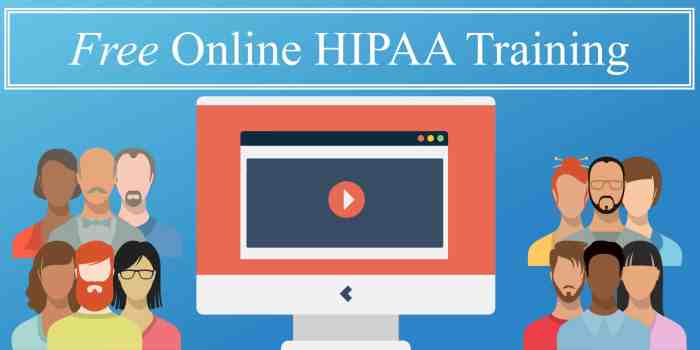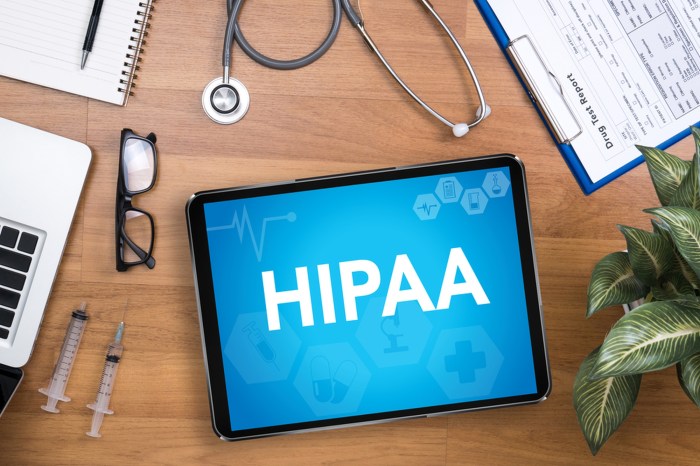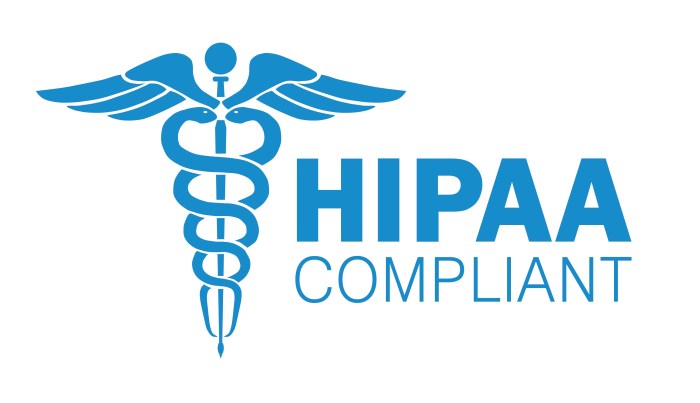Privacy act and hipaa training answers – In the realm of healthcare, safeguarding patient privacy and maintaining data security are paramount concerns. This comprehensive guide delves into the Privacy Act and HIPAA training, empowering healthcare professionals with the knowledge and tools to navigate these crucial regulations.
Understanding the intricacies of these laws is essential for ensuring compliance, protecting patient rights, and upholding the integrity of sensitive health information.
Introduction

The Privacy Act and the Health Insurance Portability and Accountability Act (HIPAA) are two federal laws that protect the privacy and security of health information. These laws are essential for ensuring that patient information is kept confidential and secure.
The Privacy Act of 1974 governs the collection, use, and disclosure of personal information by federal agencies. HIPAA, enacted in 1996, establishes national standards for the protection of health information by covered entities, including healthcare providers, health plans, and healthcare clearinghouses.
HIPAA Privacy Rule

The HIPAA Privacy Rule protects the privacy of individually identifiable health information (PHI). PHI includes any information that can be used to identify a patient, such as their name, address, date of birth, Social Security number, and medical record number.
The Privacy Rule requires covered entities to take steps to protect the confidentiality, integrity, and availability of PHI. These steps include:
- Implementing physical, technical, and administrative safeguards to protect PHI from unauthorized access, use, or disclosure
- Providing patients with a Notice of Privacy Practices that explains their rights and responsibilities under the Privacy Rule
- Obtaining patient consent before using or disclosing PHI for certain purposes, such as marketing or research
Privacy Act of 1974
The Privacy Act of 1974 governs the collection, use, and disclosure of personal information by federal agencies. The Act gives individuals the right to access their own records, request corrections to their records, and prevent their records from being disclosed to third parties without their consent.
The Privacy Act applies to all federal agencies, including the Department of Health and Human Services (HHS), which is responsible for enforcing HIPAA.
Training Requirements
Covered entities are required to provide training to their employees on the Privacy Act and HIPAA. This training must cover the following topics:
- The key provisions of the Privacy Act and HIPAA
- The employee’s role in protecting patient privacy and security
- The consequences of violating the Privacy Act or HIPAA
Compliance and Enforcement

Covered entities are required to comply with the Privacy Act and HIPAA. Failure to comply can result in civil and criminal penalties.
HHS is responsible for enforcing the Privacy Act and HIPAA. HHS can investigate complaints of non-compliance and take enforcement actions, such as imposing fines or suspending or revoking licenses.
Best Practices for Privacy and Security: Privacy Act And Hipaa Training Answers

In addition to complying with the Privacy Act and HIPAA, covered entities should implement best practices for protecting patient privacy and security. These best practices include:
- Using strong passwords and encryption to protect PHI
- Limiting access to PHI to only those who need it to perform their job duties
- Regularly reviewing and updating privacy and security policies and procedures
FAQ Compilation
What are the key provisions of the HIPAA Privacy Rule?
The HIPAA Privacy Rule establishes national standards for protecting the privacy of individually identifiable health information. It governs the use and disclosure of protected health information (PHI) by covered entities, including healthcare providers, health plans, and healthcare clearinghouses.
What are the training requirements for the Privacy Act and HIPAA?
Healthcare organizations are required to provide training to their workforce on the Privacy Act and HIPAA regulations. Training must cover topics such as the rights of patients, the uses and disclosures of PHI, and the security measures required to protect PHI.
What are the consequences of non-compliance with the Privacy Act and HIPAA?
Non-compliance with the Privacy Act and HIPAA can result in significant penalties, including fines, imprisonment, and exclusion from participation in federal healthcare programs.